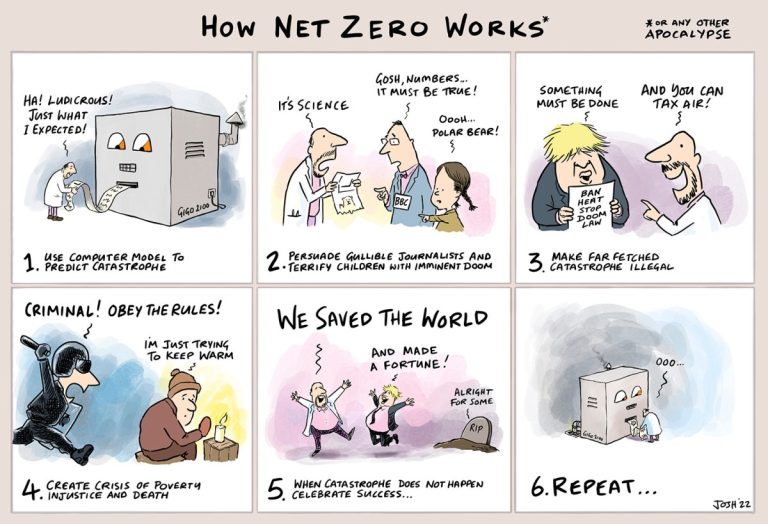from Oxford University and Hmm….duhhhh! It is futile for departments to engage in this peer-reviewed approach.
A new study led by the University of Oxford's Department of Physics was published on 18 November in naturean international team of authors develops the science behind net zero, demonstrating reliance on “natural carbon sinks” such as forests and oceans to offset ongoing CO22 Emissions from fossil fuel use do not actually prevent global warming.
Net zero science developed over 15 years ago did not include these natural carbon sinks in the definition of anthropogenic net carbon dioxide2 emission.
Natural sinks play a vital role in mitigating the impact of current emissions and reducing atmospheric carbon dioxide2 Concentrations after net zero date, stabilizing global temperatures. However, governments and businesses increasingly rely on them to offset emissions rather than reduce fossil fuel use or develop more durable CO22 Disposal options. Emissions accounting rules encourage this by establishing a clear equivalence between fossil fuel emissions and CO2 reductions2 Through some natural carbon sinks, This means that a country can appear to have “achieved net zero emissions” while still contributing to ongoing warming.
The authors call on governments and businesses to clarify the extent to which they rely on natural carbon sinks to meet their climate goals and recognize the need geological net zero.
Net zero for geology means using one ton of CO2 to balance carbon flows in and out of the solid Earth2 Commit to geological sequestration of every ton still produced from continued use of fossil fuels. Considering the costs and challenges of permanent geological CO22 storage, achieving geological net zero will require significant reductions in fossil fuel use.
The authors stress the importance of protecting and maintaining natural carbon sinks, while acknowledging that doing so will not compensate for continued fossil fuel use. Historical total carbon dioxide2 Emissions determine how much a country or company contributes to the world's ongoing need for natural carbon sinks. Countries like the UK with large historical emissions and limited natural sinks have implicitly committed other countries to maintaining natural sinks for decades after UK emissions reach net zero. Climate negotiations have not yet resolved this issue.
Miles Allen, a professor in the Department of Physics at the University of Oxford who led the study, concluded: “We've looked to forests and oceans to remove our past emissions, much of which came from burning what we dug out of the ground. We can't count on them too to compensate for future emissions. By mid-century, any carbon still released from the ground must be returned to permanent storage. This is geological net zero.
Dr Glenn Peters of the Cicero Center for International Climate Research in Oslo, Norway, who co-authored the study, said: “Countries report emissions and removals, but using all removals for climate targets would lead to continued warming. . Currently, natural carbon sinks remove about half of our annual emissions for free, but this ecosystem service must be separated from the fossil emissions that drive climate change. Relabeling will not stop global warming.
Professor Kirsten Zickfeld of Simon Fraser University in British Columbia, Canada, who co-authored and led other 2009 net-zero papers, said: “It is generally accepted that removing carbon from the atmosphere to offset the burning of fossil fuels is equally effective. It No. Offsetting continued use of fossil fuels through carbon removal will not be effective unless we can improve national greenhouse gas reporting and target setting if carbon removal is already considered part of the natural carbon cycle and carbon is not stored permanently. transparency, otherwise offsets will become part of the problem rather than part of the solution.
Study co-author Professor Joe Howes of the University of Bristol, UK, said: “Land is limited and we rely on it for food, nature, biodiversity, recreation, water storage and more. Even now, it cannot Offsetting more than a portion of fossil emissions, and likely fewer in the future as biosphere stresses such as population growth and fires and droughts worsen, provides carbon credits for ongoing natural processes anyway, undermining the overall view. Trust in the idea of offsets. We must urgently protect natural carbon sinks, but there are more scientifically credible and fair ways to do this than relying on the carbon offset market.
Relevant
